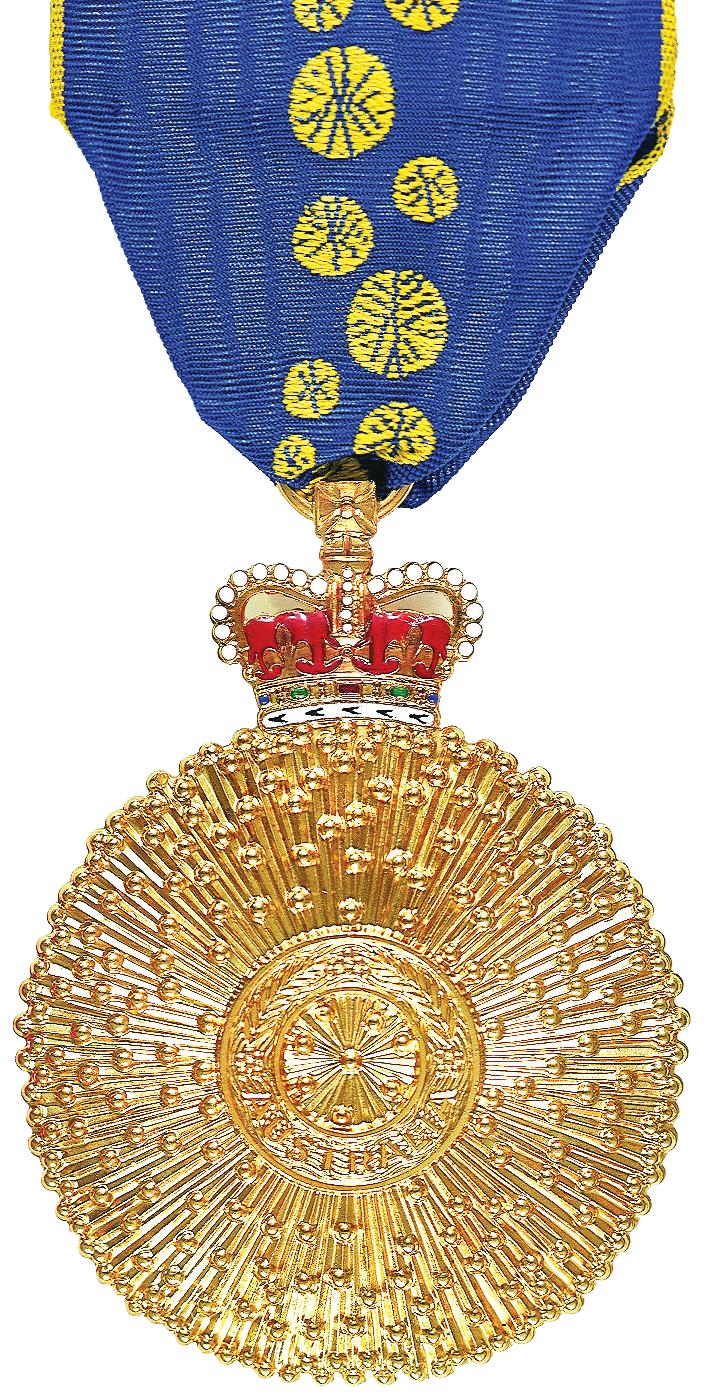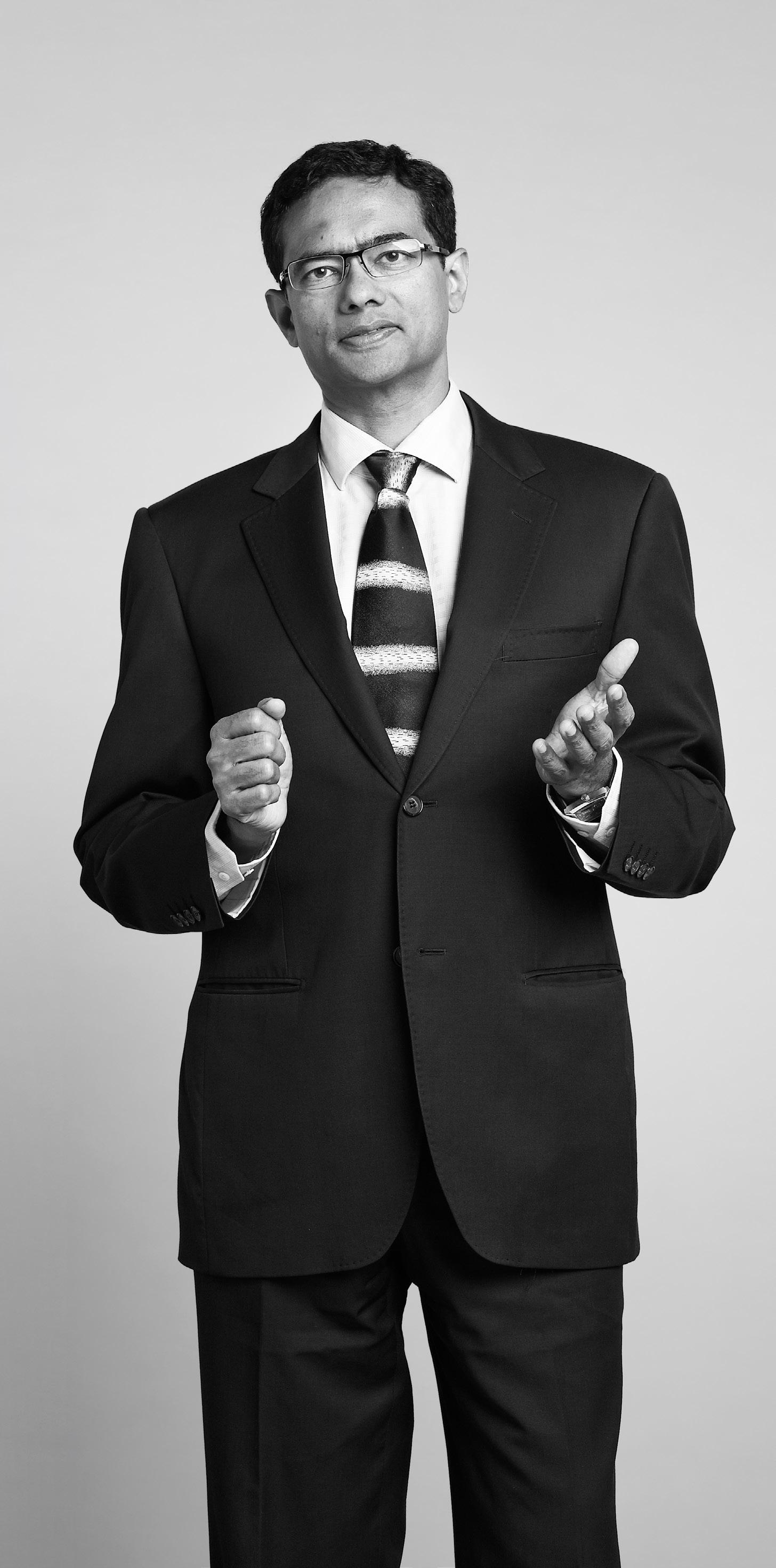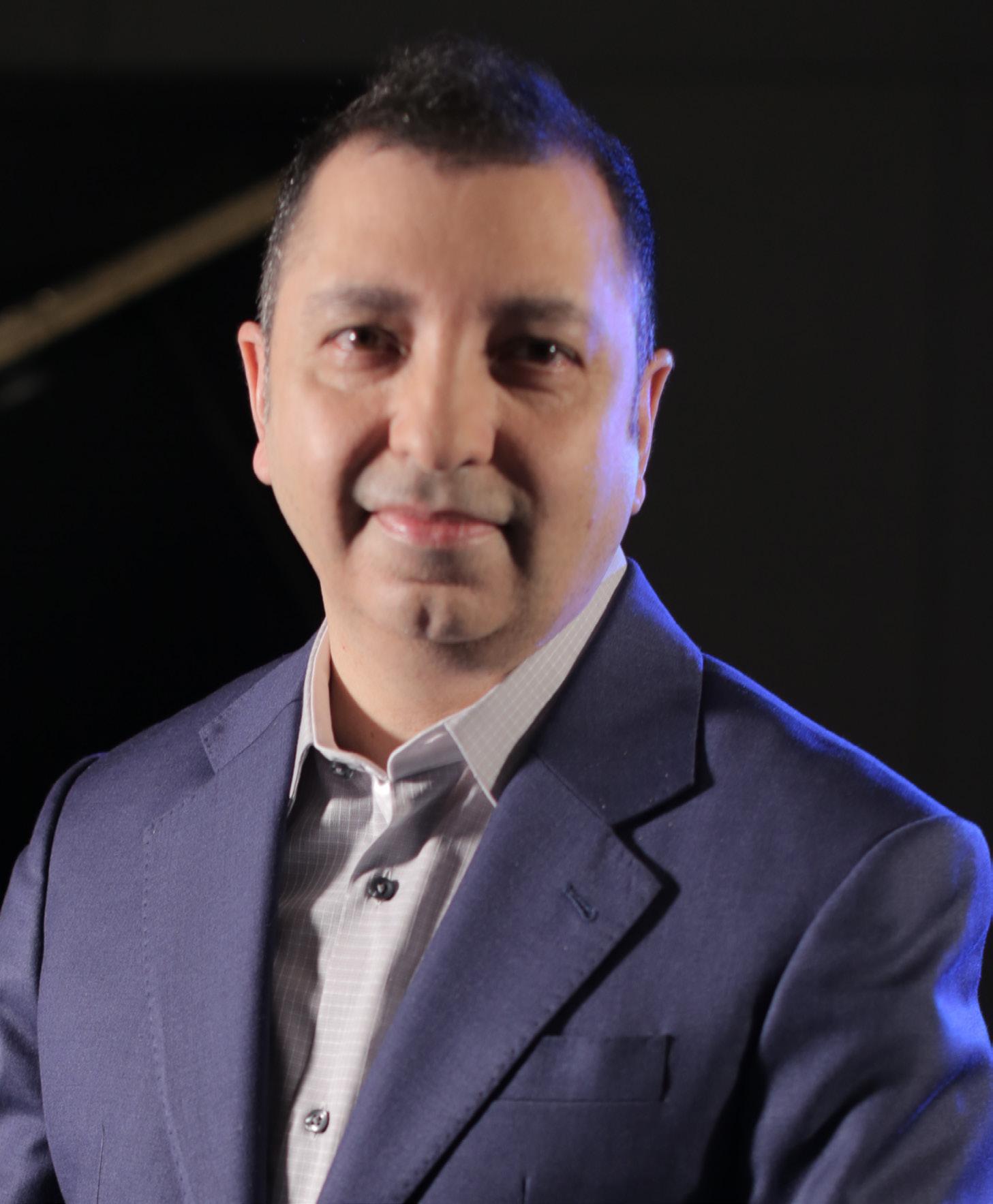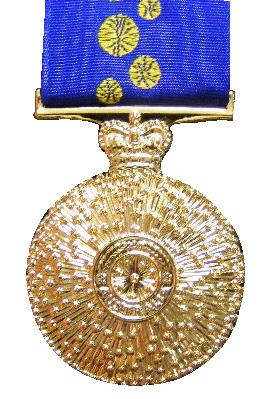
10 minute read
AUSTRALIA DAY HONOURS
from 2019-01 Sydney (2)
by Indian Link
STRUGGLE, SUCCESS AND SUCCESSION
Sydney’s PEEYUSH GUPTA, AM
For significant service to business, and to the community, through governance and philanthropic roles
The first things that strike you about Peeyush Gupta are his youthful looks and humility. A few minutes into the conversation, it becomes clear that he is also an excellent listener, his ability to ask strategic questions showing a very intelligent and curious mind at work.
These among other qualities led Peeyush, along with four other partners, to build a well-respected financial advisory and research firm IPAC, and subsequently sell it to AXA for an estimated $200 million.
Along the way, Gupta won industry awards, and served the community in his role as director or trustee of a number of professional, educational and philanthropic institutions, ranging from NAB, LINK, MLC, AMP, SBS, icare, Murdoch Books, Western Sydney University, UNSW Business School and Ascham School.

Here, this extraordinary Indian-Australian tells us about his eventful journey.
Coming to Australia
Dad was in the Indian Foreign Service, so our family lived around the world, moving every three years. We arrived in Canberra on Dec 13, 1975. I completed Years 11 and 12, and was one year through my first university degree when Dad was posted again. I stayed on to finish my degree, and then obtained PR. My brother also came back a few years later to do his uni studies. Dad and Mum returned to Australia to live permanently some 20 years later after Dad had retired.
Due to the nature of Dad’s job, I went to six schools (in London, Kathmandu, Belgrade, Jaipur, Delhi and Canberra) before I graduated from high school. I wanted to be a doctor initially, and got into Medicine at Sydney University, but could not afford to move from Canberra to Sydney as an overseas student (Canberra did not have a medical degree in those days). So I did a degree in Computing Studies instead initially. After one year of work, I went on to do an MBA in finance at UNSW. Later in life, I did senior executive programs at Harvard and London Business Schools.
Where it all started
For some reason, I thought no one would give me a job, so thought I’d have to start my own firm, which I did with some partners whilst I was doing my MBA. We called the firm IPAC - Investment Planning and Advisory Company. Two of my partners were Sri Lankan by heritage, although one had lived most his life in Australia, the other a lot of his in England.
Our biggest impediment initially was not so much our ethnicity as our youth: the four partners were all in their mid-20s at the time, and inexperienced. However, the quality of our research attracted large corporate clients (eg. the banks and life insurance firms), and we quickly gained a reputation for being thought leaders in the emerging wealth management industry. The credibility of having some of Australia’s largest financial firms as clients of our research, in turn, gave us credibility with other clients, which helped build the business.
Success was not overnight, it took a patient 20 years to build the firm! By luck rather than design, the partners had complementary skills (sales, marketing, operations), similar values, and mutual respect, so the partnership prospered over time.
We sold the business when I was in my early 40s, so I did not need to work for money thereafter. Nonetheless, as IPAC’s journey was not finished, I worked on for another seven years for the multinational firm AXA to whom we had sold our business. When I turned 50, I transitioned from a CEO role to a ‘portfolio’ role, consisting of governance roles.
The challenges and rewards of being on various Boards
Generally, I accept directorships with firms whose mission I am passionate about. Eg, SBS as I believe the role of quality public broadcasters to be fundamental to the sound operation of democracies; Western Sydney University as I believe education is a key pathway for people, especially migrants, to succeed in life, and of course my various roles in the banking and financial services sector, as the effective creation of credit and deployment of investment underpins the economic success of any country.
All jobs have periods which can be frustrating, and being a Director is no different; however, if you believe in the underlying mission, it gives you the strength to persevere through the difficult times.
Being on the Australia Day Honours List
I felt honoured and grateful. Life is in three phases: Struggle, Success and Succession (or legacy). Being in the legacy phase of my life, I feel the honour recognises the contributions I have made and am seeking to make to the issues which I am passionate about, including the finance industry, education and proper governance and stewardship.
On future plans
My parenting responsibilities are not yet over, and my children are still in high school or university, so supporting them to complete their education and get settled into careers remains an outstanding duty. Professionally, I would like to support each of the firms on whose boards I serve to continue to fulfil their mission and grow.
This includes one of the leading firms in quantum cybersecurity, where I would like to see world-leading Australian technology being successfully commercialised.
Advice to new migrants
Success generally derives from attitude, capability and hard work. Most migrants have the will and the drive to succeed as they have no other fall-back. To that, you need to add some skills or capabilities (generally, but not always, through education). And then hard work, over a period of time. Having integrity, good values, and humility also helps (as luck is often important in success too!). Australia is a wonderful country to live in, and provides the opportunity for all who are prepared to put in to succeed. I believe it is important for all people to make some contribution to whatever community they live in, so I would encourage all migrants to give back in whatever way they can to causes and communities that are important to them.
Pawan Luthra
Mr Eloquence
Sydney’s CYRUS MEHER-HOMJI, OAM
For
Pianist, musicologist and record executive Cyrus Meher-Homji has carved a niche for himself in the classical music scene in Australia. He has made outstanding contributions to the record industry and to the advancement of classical music, especially with his own record label Eloquence. He talks to us here about his life in music

What drew you to music, classical in particular?
Growing up in Pune, I was surrounded by classical music. Both my parents enjoyed it and my paternal grandfather had an enviable record collection. He also played the violin (and dealt with the buying and selling of instruments) in his spare time. He was a dentist - staring into people’s mouths wasn’t a profession I was remotely interested in pursuing! – and as an amateur violinist also a very good friend of Mehli Mehta (Zubin’s father). Zubin, although based in Mumbai, would take theory lessons from an Italian violinist, Oddone Savini, who had rented premises on my grandparents’ property in Pune, so classical music had always been in the air. I was passionate about it, even obsessive, and started piano lessons at the age of five. I collected and listened to whatever records I could get my hands on and still vividly remember various aunts who encouraged me and gave me records to listen to. I always knew that classical music had to be a career path, but realising it was, at the time, another thing…
Tell us about your work at Universal Music Australia, and about Eloquence, your record company.
I am General Manager of the Classics & Jazz division at Universal Music Australia. I work extensively with artists and repertoire. I work with my team to market and publicise recordings released by our parent companies – Decca, Deutsche Grammophon, Verve, Blue Note, ABC Classics. I sign artists to the Australian label. Touring artists is a new and growing part of our business.
Eloquence was launched in 1999 to make great classical recordings from the rich archives of Decca and Deutsche Grammophon available to the wider public at reasonable prices. As the label has developed, it has explored the farthest recesses of recording history, unearthing recordings previously only on vinyl (or even shellac) and making them available on CD, and of course, digitally, on download and streaming platforms - many for the first time, internationally. Over 2000 titles have been issued. I’d previously launched a classical music magazine, Soundscapes, in
1993, shortly after graduation. It lasted six years, aged me a good twelve (entering the shark-infested waters of publishing, having trained as a pianist and musicologist was another experience!); it became a victim of publishers’ whims, and when it folded, I needed something like it that I could nurture, and Eloquence provided the perfect replacement.
You’ve been a presenter on radio and TV, a teacher, producer, writer and critic. Which role have you enjoyed the most?
I think all these roles feed into each other. At the heart of it is my passion for music and my great will to communicate this to as wide a public as possible. On radio, and now on TV/online with my program Good Listening (SBS and Foxtel) I introduce new classical recordings to the public. My lecturing days at universities in Western Australia, were yet another outlet to share this wonderful world - likewise critically assessing it when I wrote for The Australian and for specialist international magazines. As producer, I want to harness great, new, exciting, different and creative talent - again - so it could be experienced to its fullest. I’m sure that all these activities are linked - the essence of all being communicating the joy and wonderment, the discovery and rediscovery of music. I trained as a pianist, and the discipline that demanded is something that’s been rechannelled into my activities as a record executive today; my lecturing prepared me for public speaking and presentation, essential in my current role; my research and writing helped me develop techniques to delve into the Aladdin’s Cave of recordings from the past and to help revive them and write about them.
How would you advise young Indian-origin Australians regarding a career in the arts? Is it easier now than when you began?
Find your passion and create your own niche. I never went for a traditional job in my career. I started a magazine because there was a gap in the market and it was the perfect way of harnessing the wonderful world I was involved in. That brought me in touch with recording companies around the world, as Soundscapes enjoyed international circulation. You know, there was a wonderful man who was responsible for bringing me to Australia as an eighteenyear-old: Sir Frank Callaway, one of the great men of music in this country. I remember my parents - like all doting parents, wondering what kind of a living I would earn having chosen a, shall we say, untraditional path - asking him where he thought I’d end up in order to earn a crust. And he said to them that they needn’t worry. That I’d find my own path and my own channels and somehow turn them into a profession. He was probably right. But you need these guardian angels in your life, someone to guide you and encourage you.
Sir Frank, his successor at the University of Western Australia David Tunley, my piano teacher in Sydney Elizabeth Powell, my loving parents, and presently, our company President George Ash, have all been seminal to the development and evolution of my career. They’ve given me wings and encouraged me to fly - sometimes I might fly too close to the sun, but better that than staying dormant. Is it more difficult today than it was in my own time? Yes, there is a great deal more competition today, but that’s because there are more platforms and in turn, more opportunity.
Are you involved with the music scene in India at all?
I do know about the wonderful work the Mehli Mehta Foundation under Mehroo Jeejeebhoy does in bringing musicians, orchestras, great artists to India. As a child, we regularly went to recitals (and occasionally orchestral concerts), and it was seminal to my development. I’m glad the tradition has been kept alive. One of my closest musical friends, Roxane Anklesaria, is now one of India’s leading piano teachers. Pianists like Pervez Mody (we shared a piano teacher, Farida Dubash) have carved a wonderful career for themselves. And then, of course, there’s the doyen of all Indian-born classical musicians, Zubin Mehta, whom I regard as a friend, and the reissue of whose magnificent recordings for Decca was one of the first projects I undertook when launching the Eloquence label.
But, of course, the scene has expanded greatly. One of the newest forms of classical music is ‘neo-classical’, blending alternative music with classical, and led by such composers/performers as Ludovico Einaudi, Joep Beving, Max Richter and Peter Gregson. I think a lot of traditional instrumental Indian classical music could morph or cross-fertilise into this area and it’s something I’d really like to explore. This new genre/movement enjoys links with health, meditation, relaxation, and I can just hear how beautifully Indian instruments could be integrated into this soundworld. Given that so much music discovery is led by mood, this would work perfectly. More traditionally, Anoushka Shankar and Norah Jones, both children of the great Ravi Shankar, are signed to us as part of the Universal Music Group.
What do you hope to achieve with your OAM honour?

When I tell people that I’ve been working for Universal Music Group for nearly 21 years they often gasp in surprise. How can anyone last so long in such a rapidlychanging environment? The answer is that you’re never the same two months ago as you are today. You can’t afford to be. Every month or week, even day, is a new experience for me. New platforms are embracing the styles of music I care about, making it so much more accessible and discoverable. We have moved into the roles of presenters, so that we’re not just making, marketing and distributing records, but also giving the public to see these artists in concert; regional touring in Australia is a very important part of our gambit, as it allows us to take our musicians into areas sometimes bereft of this line of entertainment. We’ve started a classical publishing division to bring composers, new and old, into our family. We’re producing more and more content to demystify, defrost classical music. I am humbled to have been honoured in this way, and hope it might further assist my efforts to completely remove the sometimes self-imposed shackles that western art music finds itself bound by.
Rajni Anand Luthra










